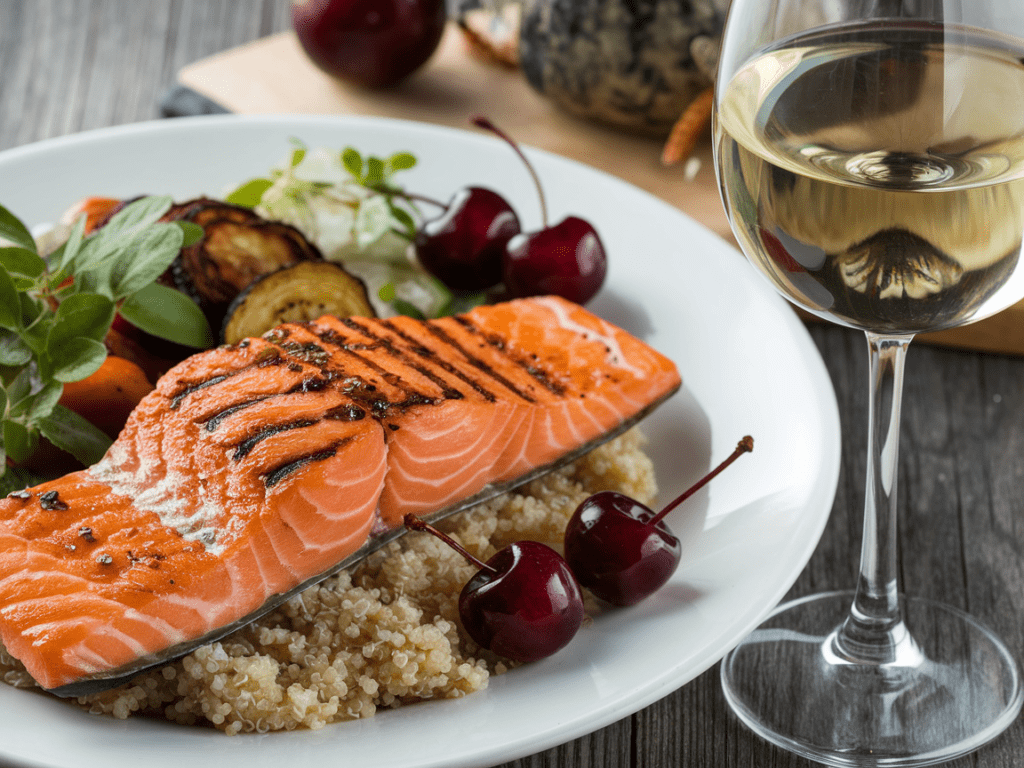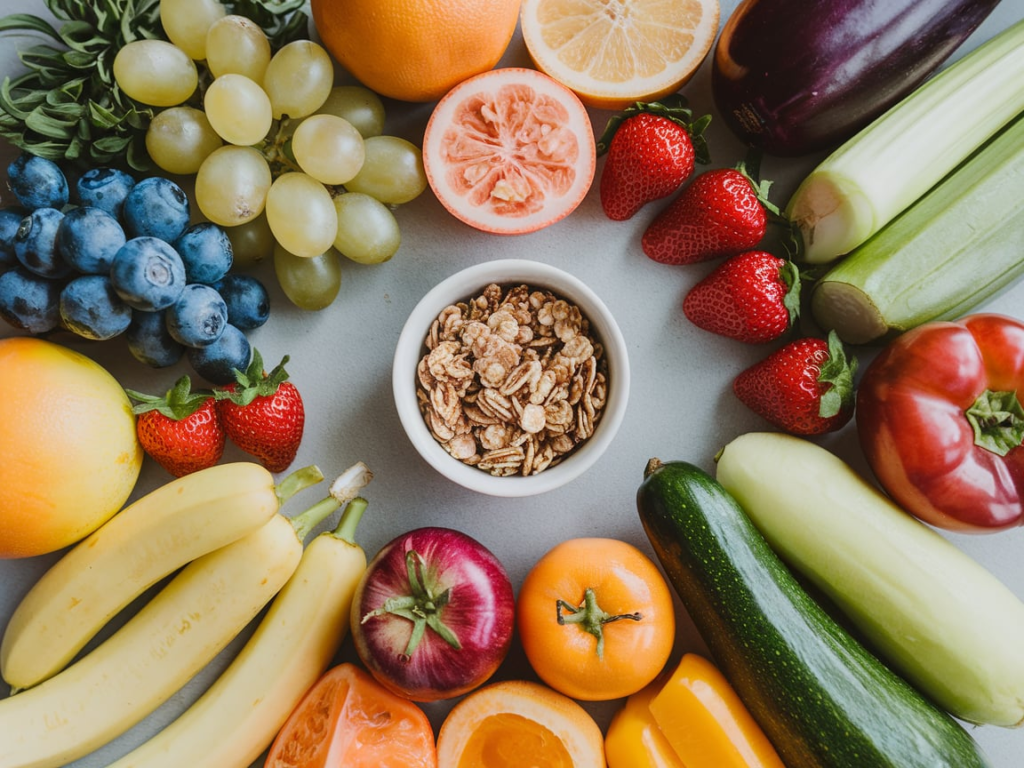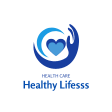“10 Essential Nutrition Tips for a Healthier Life”

"Fuel your body, transform your life! Discover the power of nutrition."
Introduction
Nutrition is a vital aspect of our lives, influencing not just our physical health but our mental well-being and overall quality of life. In a world filled with conflicting dietary advice, understanding the fundamentals of nutrition can empower you to make informed choices that enhance your health. This guide explores the essentials of nutrition, the roles of various nutrients, popular diets, and tips for creating a balanced meal plan.
Understanding Nutrition

What is Nutrition?
Nutrition refers to the process by which our bodies take in and utilize food to sustain life, support growth, and promote health. It encompasses various components, including macronutrients, micronutrients, and water, each playing a crucial role in bodily functions.
Macronutrients vs. Micronutrients
Macronutrients are nutrients that provide energy and are needed in larger amounts:
- Carbohydrates: The body’s primary energy source, found in fruits, vegetables, grains, and legumes.
- Proteins: Essential for building and repairing tissues, proteins are composed of amino acids and can be sourced from both animal and plant products.
- Fats: Important for hormone production and nutrient absorption, healthy fats can be found in avocados, nuts, seeds, and oils.
Micronutrients are vitamins and minerals required in smaller amounts:
- Vitamins: Organic compounds that support various bodily functions, such as immune response and energy production.
- Minerals: Inorganic elements like calcium and iron that are essential for bone health and oxygen transport, respectively.
The Role of Nutrition in Health

Impact on Physical Health
Good nutrition is foundational for physical health. It helps prevent chronic diseases such as obesity, diabetes, and heart disease. A balanced diet can also enhance immune function and promote longevity.
Mental Health and Nutrition
The link between diet and mental health is increasingly recognized. Nutrient-rich foods can influence mood and cognitive function. For example, omega-3 fatty acids found in fish and flaxseeds are linked to improved mental health, while deficiencies in vitamins like B12 and D may contribute to mood disorders.
Essential Nutrients and Their Sources
Carbohydrates
Carbohydrates can be categorized as simple (sugars) and complex (starches and fibers). While simple carbs provide quick energy, complex carbs offer sustained energy and are often rich in fiber. Sources include:
- Whole grains (brown rice, quinoa)
- Fruits and vegetables
- Legumes (beans, lentils)
Proteins
Proteins are vital for building and repairing tissues. Sources include:
- Animal products (meat, fish, eggs)
- Plant-based options (tofu, lentils, chickpeas)
- Dairy products (milk, cheese)
Fats
Fats are essential for hormone production and nutrient absorption. Focus on healthy fats such as:
- Monounsaturated fats (olive oil, avocados)
- Polyunsaturated fats (nuts, seeds)
- Limit saturated and trans fats (found in fried foods and processed snacks).
Vitamins and Minerals
Vitamins and minerals support numerous bodily functions:
- Vitamin C: Important for immune function (citrus fruits, bell peppers).
- Vitamin D: Crucial for bone health (sunlight, fatty fish).
- Calcium: Necessary for strong bones (dairy products, leafy greens).
Dietary Guidelines and Recommendations

Understanding Food Labels
Reading nutrition labels can help you make healthier choices. Look for:
- Serving sizes
- Calories
- Key nutrients (sugars, fats, sodium)
- Ingredient lists for quality and healthful ingredients.
Recommended Daily Allowances (RDAs)
RDAs are guidelines that suggest the optimal intake levels for essential nutrients. They vary based on age, sex, and life stage. For example:
- Adults generally need around 46 grams of protein per day.
- Calcium intake should be about 1,000 mg for most adults.
Popular Diet Trends
Keto Diet
The ketogenic diet focuses on high-fat, low-carb intake, aiming to induce ketosis, where the body burns fat for fuel. While it may lead to weight loss, it’s essential to consider potential nutrient deficiencies.
Mediterranean Diet
Rooted in the dietary patterns of Mediterranean countries, this diet emphasizes whole foods, healthy fats, and lean proteins. Research suggests it can reduce the risk of heart disease and improve brain health.
Vegan and Vegetarian Diets
These plant-based diets can provide numerous health benefits, including lower risks of chronic diseases. However, it’s vital to ensure adequate intake of nutrients like B12, iron, and omega-3 fatty acids through fortified foods or supplements.
Meal Planning and Preparation

Importance of Meal Planning
Meal planning can save time, reduce food waste, and help maintain a balanced diet. Here are tips to get started:
- Create a weekly meal plan.
- Make a shopping list based on your plan.
- Prep ingredients in advance.
Quick and Healthy Recipes
- Breakfast: Overnight oats with fruits and nuts.
- Lunch: Quinoa salad with mixed vegetables and a lemon-tahini dressing.
- Dinner: Grilled salmon with steamed broccoli and sweet potatoes.
- Snacks: Greek yogurt with honey and berries.
Common Nutrition Myths

Debunking Nutrition Myths
- “Carbs are Bad”: Carbohydrates are essential for energy; focus on whole, unprocessed sources.
- “All Fats are Unhealthy”: Healthy fats are vital for body function; avoid trans fats and limit saturated fats.
- “Supplements are Necessary for Everyone”: Most people can get sufficient nutrients from a balanced diet; supplements should be used judiciously.
Conclusion
Nutrition plays a pivotal role in our overall health and well-being. By understanding the essentials of nutrition and making informed dietary choices, you can fuel your body for optimal health and vitality. Remember, it’s not just about what you eat, but how you eat—focus on balance, variety, and moderation.
FAQs
1. What is the best diet for overall health? The Mediterranean diet is often recommended for its balanced approach and health benefits, including heart health and weight management.
2. How much water should I drink daily? A common recommendation is to drink about 8-10 cups of water per day, but individual needs can vary based on activity level and climate.
3. Are supplements necessary? While some people may benefit from supplements, most can meet their nutritional needs through a balanced diet rich in whole foods.
4. How can I improve my eating habits? Start by planning meals, incorporating more whole foods, and reducing processed foods. Gradual changes can lead to lasting habits.
5. What are some healthy snack options? Healthy snacks include fruits, nuts, yogurt, and vegetable sticks with hummus.




